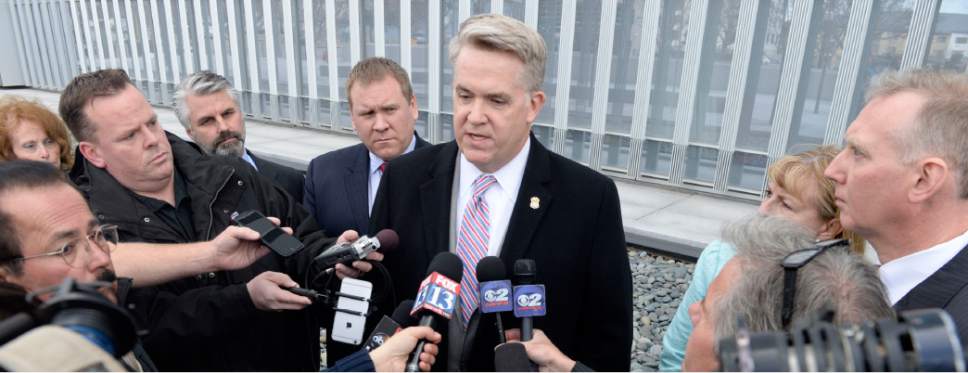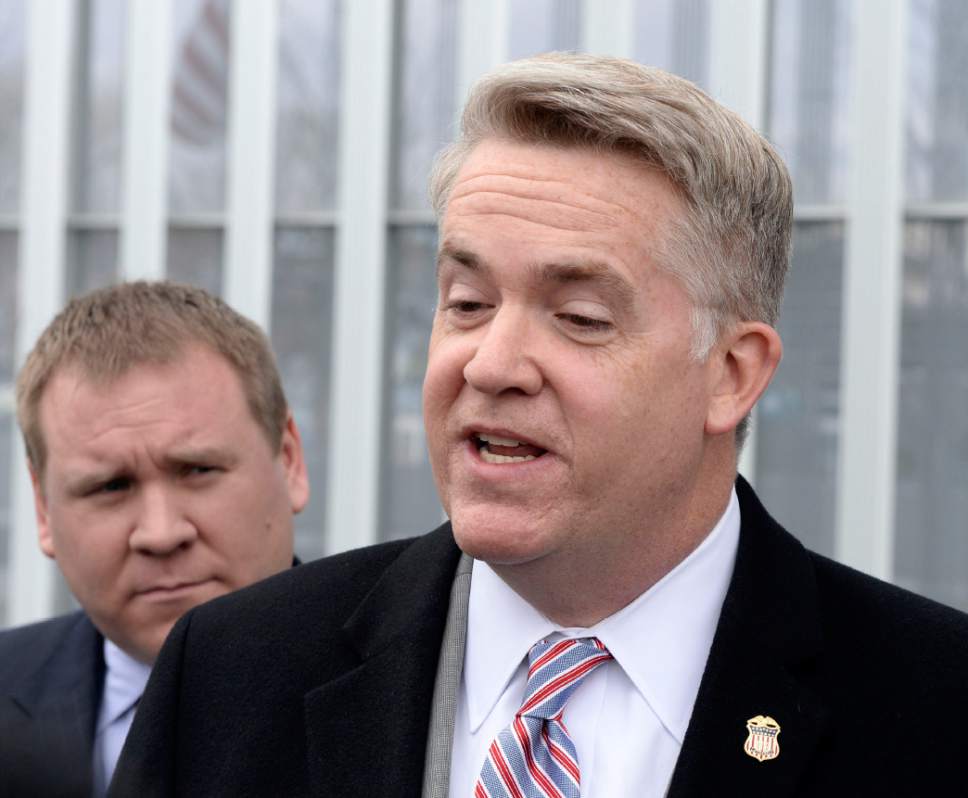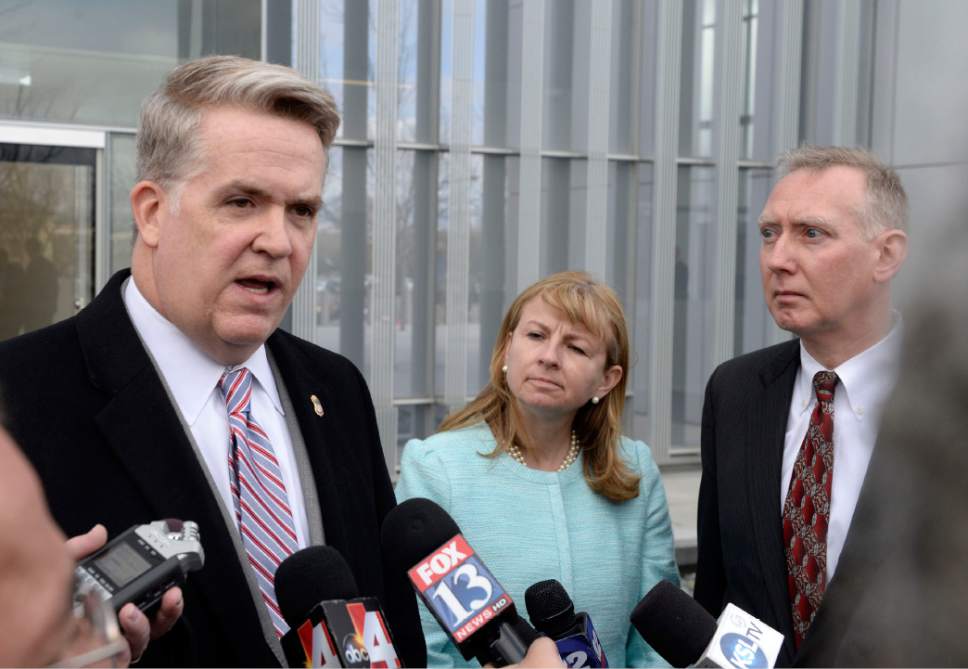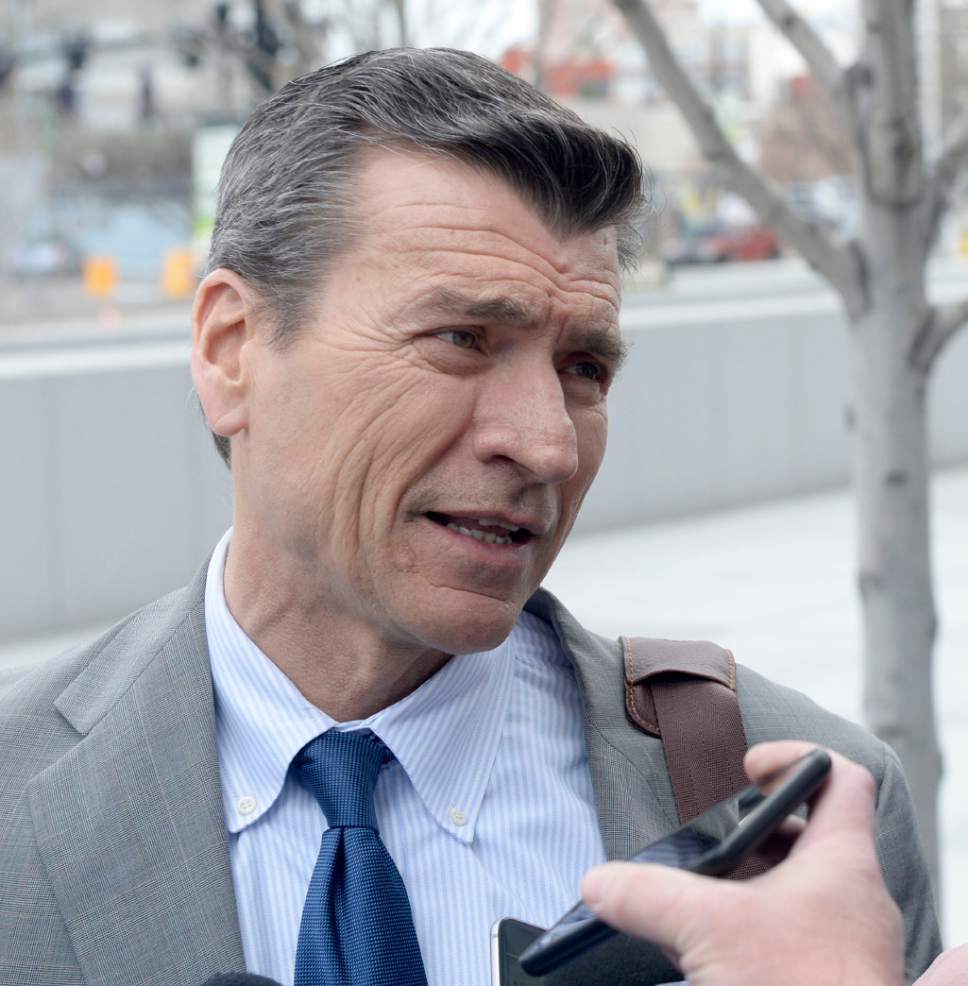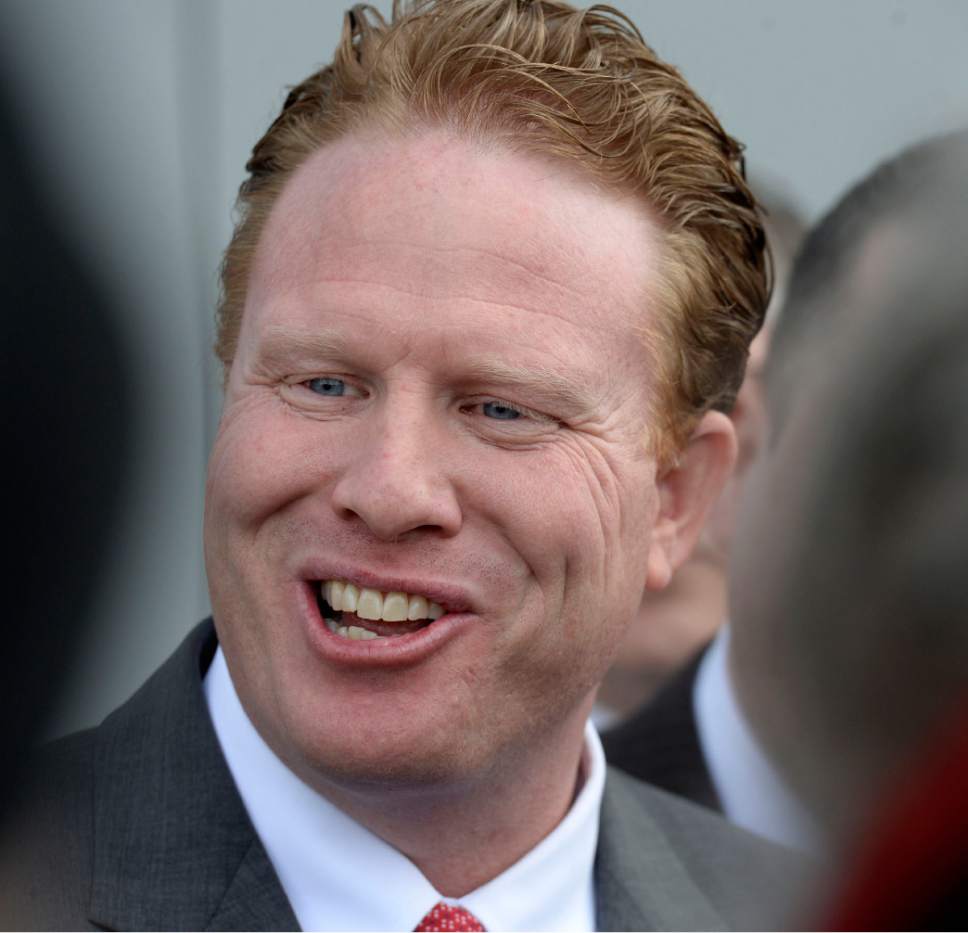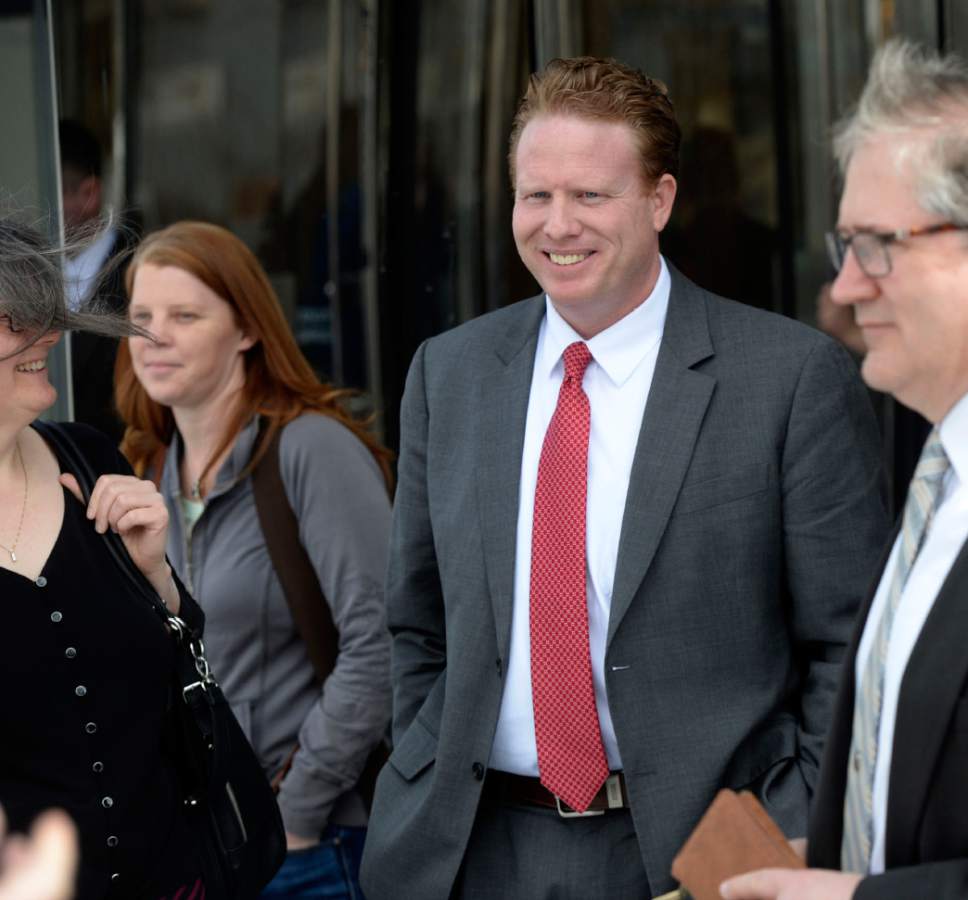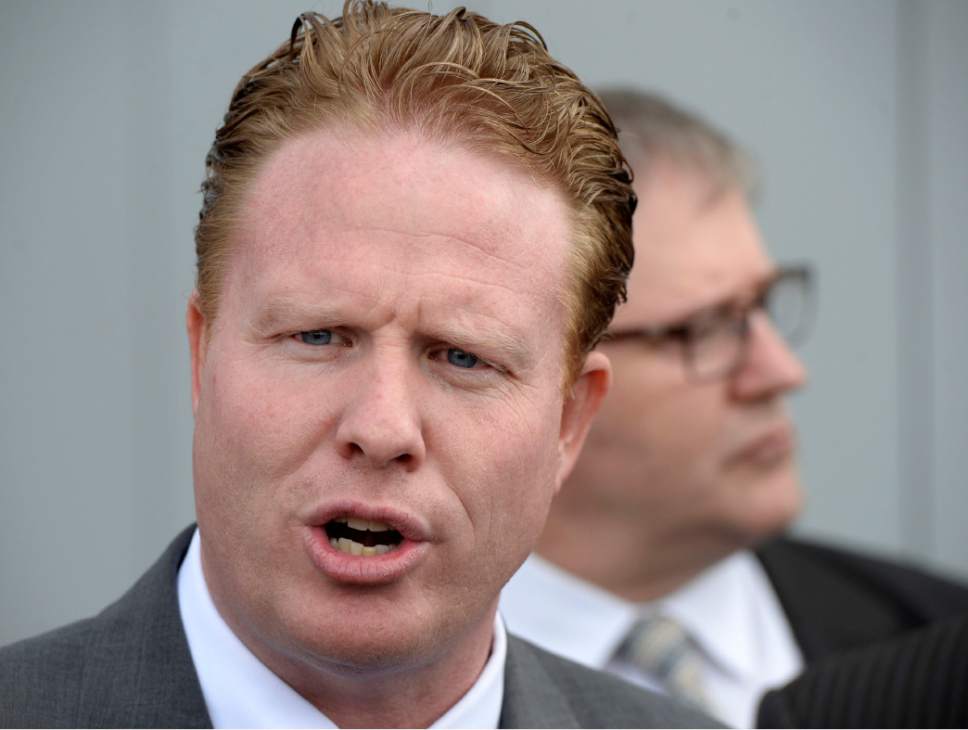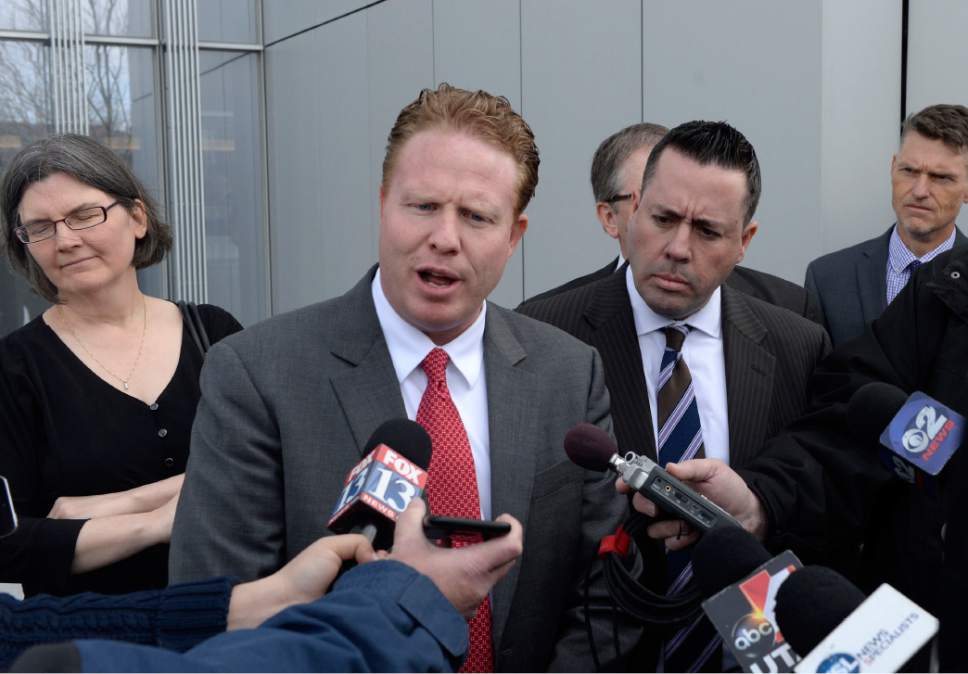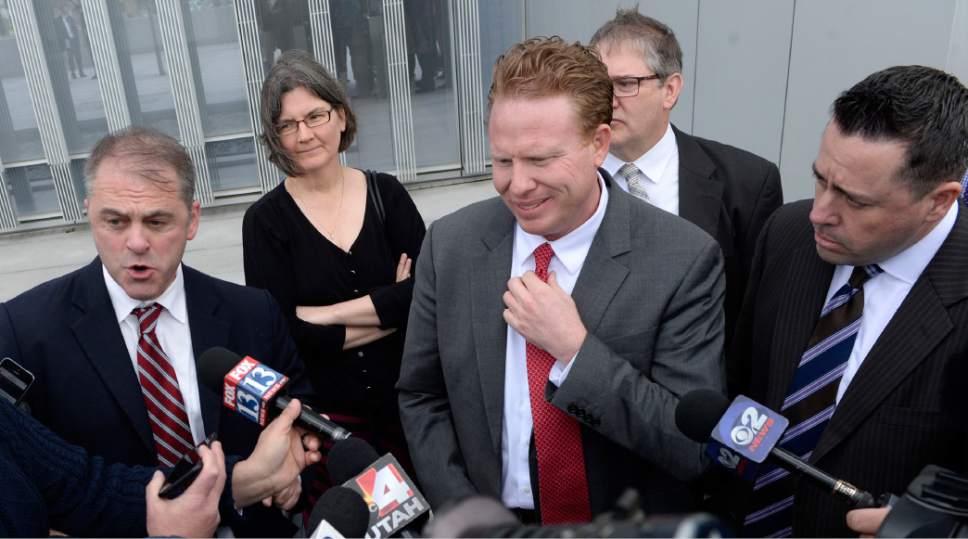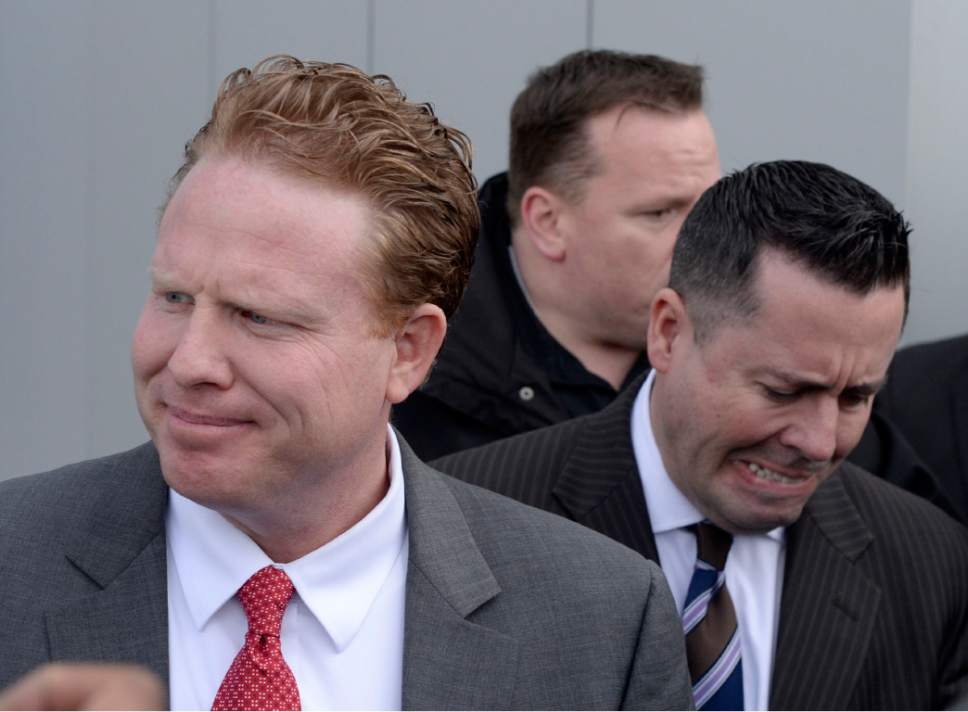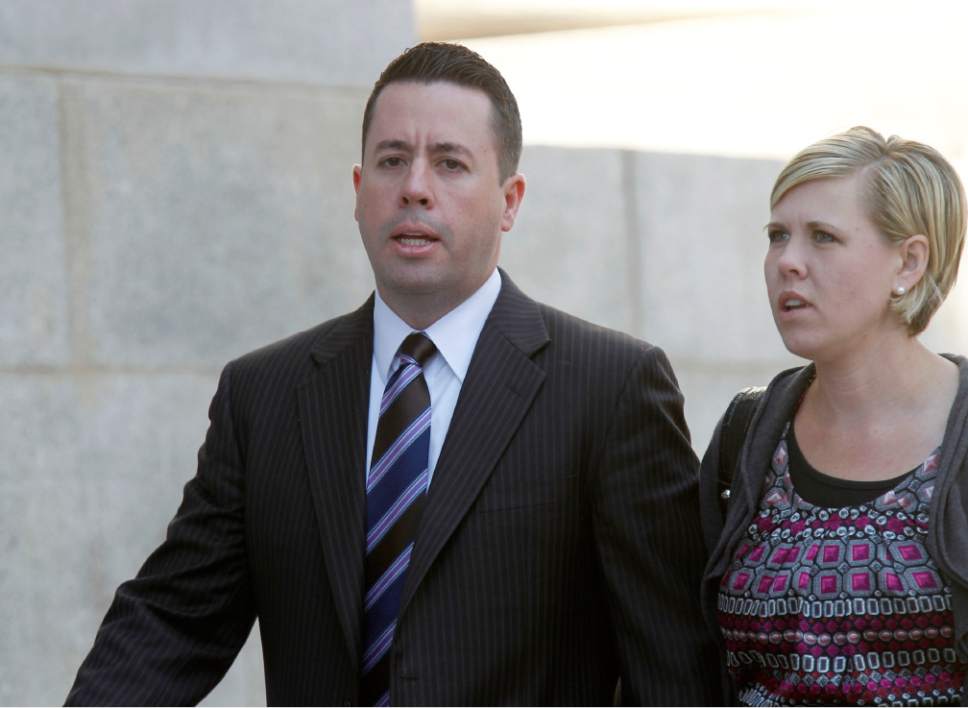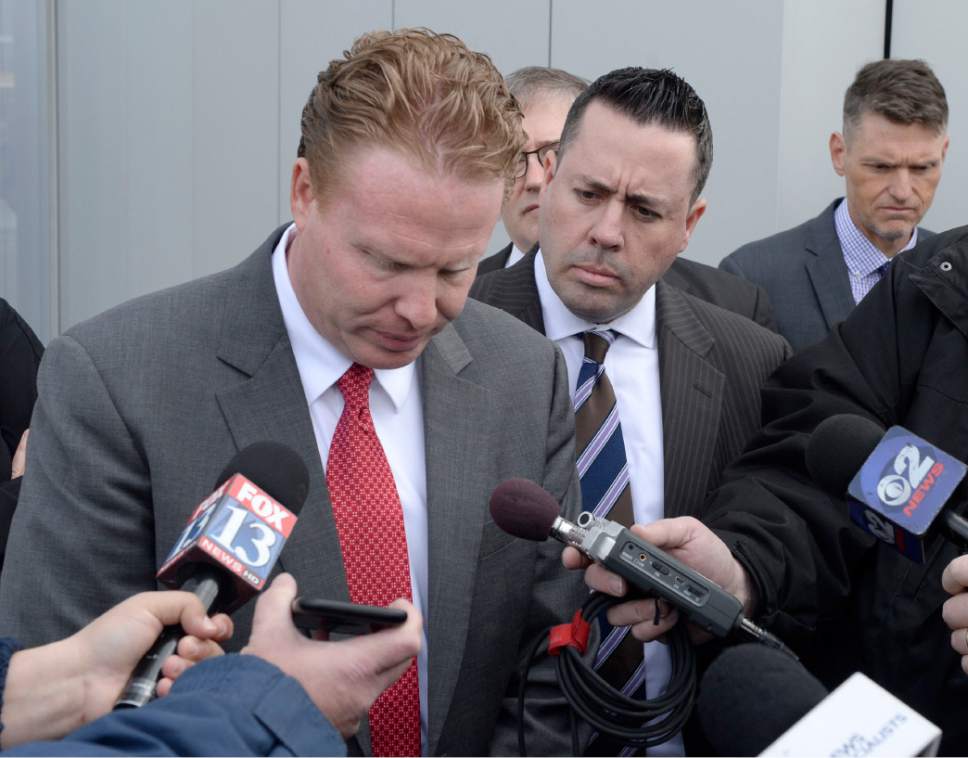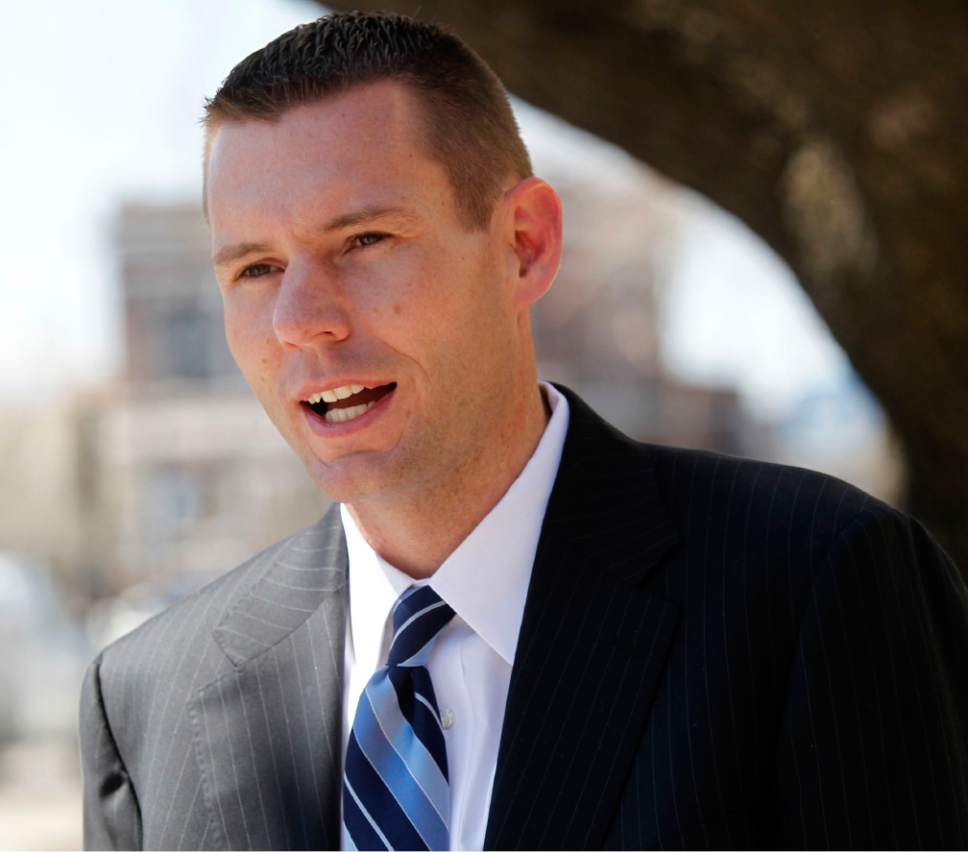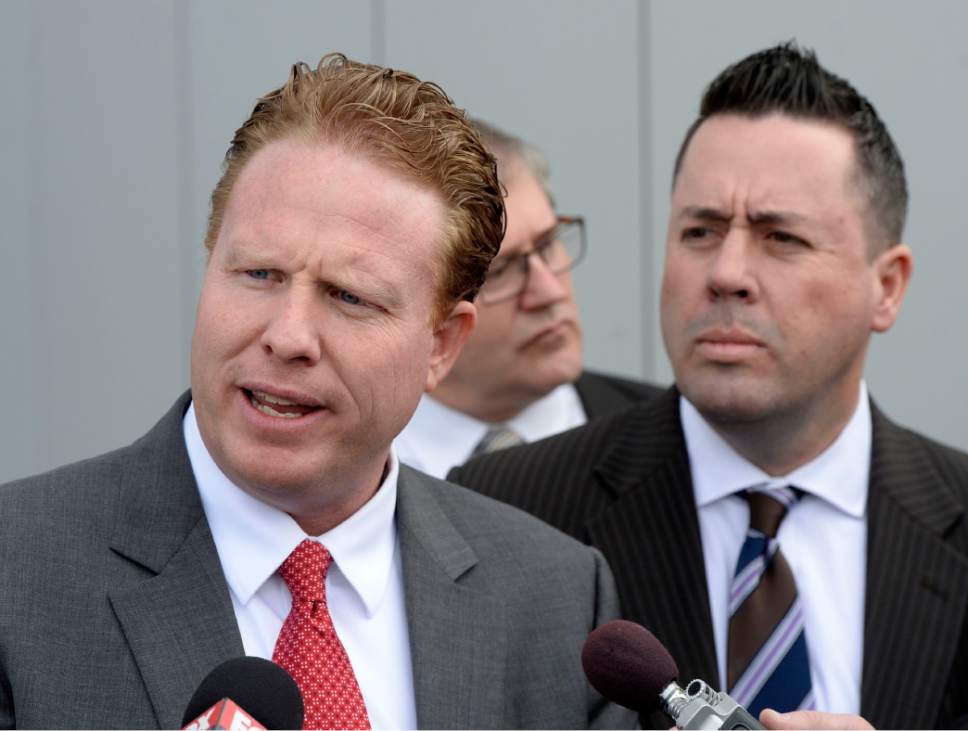This is an archived article that was published on sltrib.com in 2016, and information in the article may be outdated. It is provided only for personal research purposes and may not be reprinted.
Online entrepreneur Jeremy Johnson beat back most of the charges against him, including all allegations of fraud, when a jury returned its verdict Friday in a massive case into which the government poured enormous resources.
After starting nearly five years ago as a single charge that grew to 86 counts, the jury convicted Johnson on eight counts of submitting false information to a bank. But after six days of deliberation, the jury of nine men and three women found him not guilty of the other 78 charges, including those of bank fraud, wire fraud, conspiracy and money laundering.
Co-defendant Ryan Riddle, the former general manager of Johnson's I Works company that was located in St. George, was convicted on six counts of making false statement to a bank, while accountant Scott Leavitt was acquitted on all 86 charges.
Johnson, who acted as his own attorney during the six weeks of testimony and presentation of evidence, praised the jury's decision in what he said was an "overly complicated case." He expressed puzzlement about why the government brought a case centered on bank fraud when no one lost money in processing credit cards for I Works.
"An extraordinary amount of time and money and resources has been spent on an alleged victimless crime," Johnson said outside the courtroom. "They admit there's no victims. I can't understand it."
Attorney Marcus Mumford, who represented Leavitt, was less judicious, pointing back to the origins of the case in December 2010, when the Federal Trade Commission sued Johnson, I Works and others, and persuaded a federal judge in Nevada to seize their assets.
"Was it a fair trial? No!" Mumford said. "The FTC from the beginning of this case coordinated with the Department of Justice to take their money away and then bring false charges that were not grounded in any victim losing any money and any victim actually being able to testify, 'I was wronged.' "
The verdict deflated an extraordinary effort by the federal government to investigate and convict Johnson, Riddle and Leavitt.
U.S. Attorney for Utah John Huber was in the courtroom for the verdict. Outside, he put on a stoic face for the news media, saying prosecutors were "happy" and "satisfied."
"A felony conviction in and of itself is a big deal," he said, pointing to the "huge investment" to bring justice in the case.
"This is a con man," Huber said of Johnson. "As he started this case he said, 'I am not a con man.' Today, the jury said, 'Yes, you are.' He did not con the jury today."
In reaction, Johnson said he was surprised that Huber continued to launch personal attacks.
"The jury just handed his office a stunning defeat and if we had been allowed to present all the evidence, they would have found us not guilty on all charges," Johnson said, referring to evidence U.S. District Judge David Nuffer refused to allow the defense to present to the jury.
Nuffer set a hearing for April 1 to consider the government request that Johnson and Riddle be jailed pending sentencing June 20.
Nuffer left the two free pending the hearing, but required them to put on ankle bracelets that track their movements using GPS.
Leavitt was smiling after the court session ended but said he had mixed feelings about his complete acquittal when Johnson and Riddle were convicted on some of the charges. The case had altered his life, Leavitt said.
"I had two years of bad depression where I couldn't even get off my couch," he said. "I was medicated. I wasn't doing well. The biggest thing is I missed my youngest daughter growing up."
Riddle said he was "grateful" to the jury for its decision in which "the most serious charges along the way were dropped." He said he believed charges on which he was convicted would be overturned on appeal.
Mumford said jurors would not have convicted Johnson or Riddle on the charges of submitting false papers to a bank had they been able to hear from the defense's expert witness. That witness, whom Nuffer at the last minute refused to let testify, would have told the jury that the applications for bank accounts were within the norm for the industry, he said.
"He would have said that, according to industry standards that apply, it would be inappropriate to conclude that there were any false statements made to anybody," Mumford said.
The case has been contentious since the beginning, with Johnson at one point launching an Internet campaign against prosecutors and attorneys for the FTC.
The trial itself was a series of battles over witnesses and evidence made more complicated by Johnson and Riddle representing themselves.
Nuffer appeared perturbed with the defense several times and threatened Mumford with a contempt citation on at least three occasions.
That animosity continued after the jury left the room Friday. Government lawyers opposed the lifting of the gag order — which had been in place for nearly three years on the prosecutors and defendants in the case — and asked that Johnson and Riddle be jailed pending sentencing.
Assistant U.S. Attorney Karin Fojtik said Johnson had texted a witness during the case, threatened people in the prosecution's office and attempted to get into their office.
"This warrants taking him into custody today," Fojtik said in an impassioned plea. Her statement prompted some quiet laughter on the side of the courtroom filled with family and friends of the defendants.
Rebecca Skordas, an attorney who had represented Johnson before he decided to act as his own lawyer, told Nuffer that federal sentencing guidelines could mean that the recommended prison time for Johnson could be as low as zero to six months.
But Fojtik said prosecutors would be seeking a number of enhancements that would warrant a longer sentence.
Johnson and his company still face a civil trial in July in the FTC lawsuit. I Works attorney Karra Porter said the decision in the criminal case could bolster their defense in the FTC trial.
"Now we get to explain that the vast majority of the charges turned out to be without merit," said Porter, who was in the courtroom for the verdict.
Government prosecutors alleged during their four weeks of presenting testimony and evidence that the three defendants conspired to defraud Wells Fargo Bank when they submitted applications for new accounts using the names and personal information of employees and family members.
That was necessary, the government alleged, because accounts in the name of Johnson's I Works company had been placed on credit card company lists of bad merchants after a large number of chargebacks and Johnson needed to conceal that he was behind new account applications.
Johnson, Leavitt and Riddle, who presented testimony and evidence over seven days, said that Wells Fargo had delegated the authority to open new accounts within certain limits to a sales agent. That agent, California-based CardFlex Inc., knew of Johnson's involvement and had even suggested and carried out the plan. In addition, they said Johnson provided a personal guarantee for each account and that two I Works employees were listed as contacts on the applications.
Johnson has been at the center of the political and legal whirlpool of scandals that drove Utah Attorney General John Swallow from office and engulfed his predecessor, Mark Shurtleff.
The events that rocked Utah were sparked by Johnson's allegations in January 2013 that the then-newly elected Swallow had taken part in a plot to bribe the most powerful senator in the land, then-U.S. Senate Majority Leader Harry Reid, D-Nev., on Johnson's behalf.
Swallow denied involvement in a bribe attempt, but he and Shurtleff now face multiple criminal charges that include some counts related to an alleged pay-to-play scheme in the attorney general's office. Both have pleaded not guilty.
Jeremy Johnson prosecution timeline
2010
Dec. 21 • Federal Trade Commission sues Johnson, his I Works company and others.
2011
June 10 • Criminal complaint filed charging Johnson with one count of wire fraud
June 11 • Johnson arrested in Phoenix airport
June 15 • First grand jury indictment handed up with same charge as complaint
Sept. 15 • Johnson freed on bail after 96 days in jail
2013
Jan. 11 • Plea deal with Johnson falls apart after government won't agree to make part of the court record a list of people Johnson wants shielded from prosecution.
March 6 • First superseding indictment with 86 charges adds four new defendants who were top-level I Works employees, Ryan Riddle, Scott Leavitt, Bryce Payne and Loyd Johnston
Dec. 5, 2013 • Second superseding indictment
2015
Aug. 5 • Third superseding indictment
Oct. 16 • Defendant Loyd Johnston dismissed from case after his attorney argues the government violated a promise of immunity
2016
Jan. 26 • Defendant Bryce Payne agrees to deal and pleads guilty to one count of conspiracy.
Feb. 8 • Trial begins for remaining defendants Johnson, Riddle and Leavitt
March 18 • Final arguments concluded and jury begins deliberations
March 25 • Jury returns verdicts


